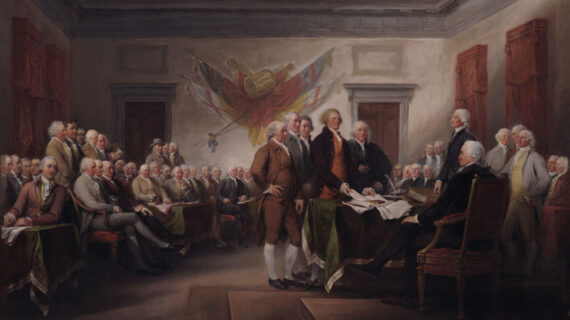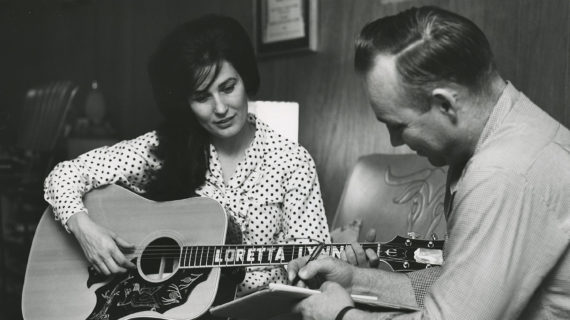Frederica Freyberg:
Incumbent Rebecca Kleefisch is challenged by Democrat John Lehman, the second term senator from the state's 21st senate district. I spoke with the Senator Lehman earlier today.
Senator Lehman, thanks very much for being here.
John Lehman:
You’re welcome.
Frederica Freyberg:
Well, in this dead heat race for governor, why would you as candidate for lieutenant governor help this ticket?
John Lehman:
I sat down with Mary Burke more than a year ago. You know, she was still traveling the state, talking to people, especially Democrat public officials, about the race. And I talked with her about 45 minutes in a coffee shop in Racine. And I said, this is an unusual candidate. She comes from the private sector really with not this long political background. She’s got philanthropy experience and she is on the school board in the Madison area. But later– At the time I wasn’t thinking about running for lieutenant governor. But I started thinking about it and realized there’s maybe some value that I could add to that ticket. Having chaired the education committee, couple budgets on joint finance, been in the legislature since 1997, I’ve run some campaigns and I thought maybe I could add some value to that ticket. So I put my name in and was fortunate enough to make it through the primary. And I’m having the best political job there is, and that's going around the state talking about Mary Burke and her platform.
Frederica Freyberg:
Now, jobs are clearly a big issue in this state and in this race. Why don’t you think the Walker administration has been able to meet their pledge or goal of creating 250,000 jobs?
John Lehman:
I think, you know, they really focused on efforts like WEDC, they focused on top-down efforts, and they didn’t focus on base efforts; that is, bringing business folks together, focusing on the educational system. If you look at Mary Burke’s jobs approach, it’s very education-centered, very clustered and regional-centered, working with existing operations, working with the technical college especially on jobs training. I think that emphasis, that early attack in the Walker administration on education and the focusing on their idea of public-private partnerships. They just didn’t get the money out the door. They had too much money going to some of their friends, I think. They just didn’t take a big picture look at jobs creation.
Frederica Freyberg:
What’s your position on the some $2 billion in tax cuts that have been implemented under the Walker administration in the past four years?
John Lehman:
Well, the average person I think, you know, is still probably thinking about that $11 they got from the Walker administration. But if you look at the nonpartisan fiscal bureau, they’re talking about $1.8 billion projected deficit. The agencies have now come in with another $1.1 billion perhaps. And the transportation estimate isn’t in. We could have the biggest deficit in Wisconsin since the largest one ever and that was under Scott McCallum when he handed off to Jim Doyle.
Frederica Freyberg:
That could be offset, though, as the Republican majority is saying, if in fact tax revenues grew a little bit, or if in fact those agency budget requests were trimmed.
John Lehman:
Sure, but, you know, if you watch the political rhetoric, they’re going after the terrible things that Jim Doyle passed on to the Walker administration. And that’s kind of a political spin both ways that you see when you talk to jobs. But I think the basic number is that 250,000 jobs number, our last ranking in the Midwest. The growth in the United States right now I think is 2.1%. We’re down a little over 1%. The basic numbers, the gold standard numbers, show without question that Scott Walker has failed.
Frederica Freyberg:
In terms of education, and you have said that you were chair of the senate education committee, a recent PolitiFact rates as mostly true' that Scott Walker cut public school funding more than any other governor. What’s your response to that?
John Lehman:
Well, you just go around the state of Wisconsin and you can see the effects in the schools and the unnecessary cuts early in the administration. I think what Walker thought, both with Act 10 and with those massive school cuts is, I’m going to do this early in my four-year term and people are going to forget. But the schools are going on and the schools are struggling. And we have a real contrast to Scott Walker in Mary Burke, somebody that’s been involved in the schools, been involved in the school board. She’s been involved in that AVID/TOPS program, where she really focuses where the focus needs to be and that is children that come from backgrounds where there’s not as many dollars there, low modest income kids, English learners, special ed kids. We need to be sure we’re bringing all these children up to standards in Wisconsin. I think Mary Burke will do that.
Frederica Freyberg:
In terms of expanded school choice across the state of Wisconsin, we know that it is now in Racine. Has that injected competition into the public schools there?
John Lehman:
No, and I think if you look at the– We’ve had a long time to look at the voucher program and we can see that it has not produced better schools. What we’re developing under the Walker administration, and I know Speaker Vos has promised to try to even expand it further statewide, we’ve got two unequal systems. We got the regular public schools, then we’ve got this unaccountable second system. Now, Senator Olson promised they were going to have full accountability by the last session and he just couldn’t get folks on the Republican side to agree with that. So we just still are throwing taxpayer monies at a system that is not accountable and is not any better than the public schools that are out there, even in places where there are struggles, like Racine and Milwaukee.
Frederica Freyberg:
I want to move it to Medicaid. In its recent agency budget request the Department of Health Services said it needed an additional $760 million in the next budget to stay even with Medicaid. Where should that money come from?
John Lehman:
Well, the money could come from the federal government. If you look at the way the Walker administration has turned down offers from the federal government, we have higher cost to our taxpayers, more people off the coverage under the Walker administration than we ought to. There’s no doubt that that’s a very large budget consideration. But you’ve got to learn to cooperate with the federal government and not play politics. We’ve got a governor who’s more interested in the Iowa caucuses than people in Iowa County in Wisconsin or any other county. You can’t be playing that politics that I won’t do anything with the federal government just so I can run for president as a very conservative candidate.
Frederica Freyberg:
One last question, and briefly. The iron ore mine in northern Wisconsin symbolizes, it seems, to us kind of the division between open for business and protector of the environment. Can Wisconsin have both those things?
John Lehman:
I think so, but I served on both mining– both senate mining committees in the last session, last two sessions, and spent a lot of time in the Penokee Hills. I believe that what the Republicans have done, changing the environmental rules, is just a travesty. They’re going to run into the Corps of Engineers, and the company is going to run into more wetlands than they ever imagined. We’re– we’ve got to do better protecting our environment rather than making these four-mile long open pit mines in northern Wisconsin.
Frederica Freyberg:
Senator John Lehman, thanks very much.
John Lehman:
You’re welcome.
Search Episodes
Related Stories from PBS Wisconsin's Blog

Donate to sign up. Activate and sign in to Passport. It's that easy to help PBS Wisconsin serve your community through media that educates, inspires, and entertains.
Make your membership gift today
Only for new users: Activate Passport using your code or email address
Already a member?
Look up my account
Need some help? Go to FAQ or visit PBS Passport Help
Need help accessing PBS Wisconsin anywhere?

Online Access | Platform & Device Access | Cable or Satellite Access | Over-The-Air Access
Visit Access Guide
Need help accessing PBS Wisconsin anywhere?

Visit Our
Live TV Access Guide
Online AccessPlatform & Device Access
Cable or Satellite Access
Over-The-Air Access
Visit Access Guide
 Passport
Passport














Follow Us